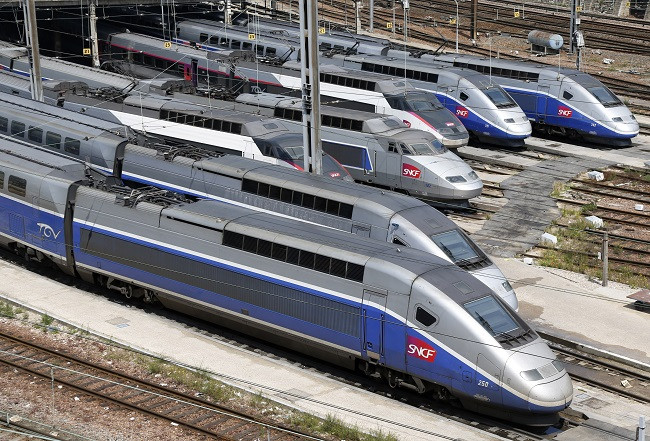French Rail Company Orders 2,000 Trains - and Finds Them too Wide for Old Platforms

French national rail company SNCF found out too late that the 2,000 new trains it had ordered for over £12bn were too wide for over a thousand regional platforms.
The mammoth task of reconfiguring about 1,300 platforms around the country to fit the new trains, which has already begun, will eventually cost over €50m (£40.6m).
The measurement mix-up occurred because the national rail operator, RFF, provided incorrect dimensions of railway platforms to the SNCF.
RFF only measured relatively recent platforms, built less than 30 years ago. About 14% of the more constricted platforms, built 50 years ago and meant for leaner models, were conveniently overlooked.
"We discovered the problem a bit late, we recognise that and we accept responsibility on that score," Christophe Piednoel, spokesman for the RFF, told France Info radio station.
Piednoel, however, was confident that the new trains would "meet the demands of the public."
Frederic Cuvillier, transport minister, said that an "absurd rail system" was responsible for the error.
In 1997, the French government separated the departments of rail operations and infrastructure under SNCF and RFF.
"When you separate the rail operator [RFF] from the user, SNCF, it doesn't work," Cuvillier told BFMTV.
The SNCF is revered for its extensive rail network that serves even the most remote parts of the country. It operates high-speed trains, including the TGV series which are among the fastest trains in the world.
However, this is not the first time the train operator has been involved in controversy.
Its cross-Atlantic joint-venture with the US state of Maryland is stuck because of a ruling that held SNCF guilty of colluding in the deportation of about 76,000 Jews to concentration camps in packed third-class compartments during World War II.
The 2006 verdict said that the SNCF railway company did not voice any objection to transporting prisoners, and the company continued to ask for payments even after France was liberated from the Nazis.
A deal between the US State Department and France to compensate the victims of WWII might soon be reached, paving the way for the commencement of the €1.6 billion (£1.3 billion) trans-Atlantic project.
© Copyright IBTimes 2025. All rights reserved.





















